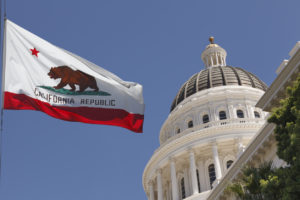The report of my death was an exaggeration.[1]
On February 17, 2025,[2] the U.S. District Court for the Eastern District of Texas, before which is pending the Smith v. U.S. Department of the Treasury dispute, lifted the preliminary injunction it issued January 7, 2025, against the Reporting Rules[3] adopted pursuant to the Corporate Transparency Act (“CTA”),[4] thereby clearing the way for enforcement of the CTA and its filing obligations. With that action, the last pending judicial barrier to broad enforcement of the CTA’s reporting obligations was lifted, and its general enforcement recommenced.
That was, however, far from the final development with respect to the implementation of the CTA. Rather, over the first weekend of March, the government and a variety of public officials, including the current chief executive of the United States, issued a series of pronouncements as to the CTA’s reach and enforcement that ultimately foreshadow the intention to abdicate much of its enforcement. The same week, another federal district court became the first to find that the CTA violates the Fourth Amendment right against unreasonable search and seizure.
The Smith Preliminary Injunction and the New March 21 Filing Deadline
To recap, as previously reviewed in detail,[5] even while the nationwide preliminary injunction issued by the district court in Texas Top Cop Shop, Inc. v. McHenry (formerly Texas Top Cop Shop, Inc. v. Garland) (“TTCS”)[6] was in effect and challenges thereto were proceeding, the Smith court issued a preliminary injunction against enforcement of the CTA, with that relief being restricted to the parties to the suit before the court, and a nationwide injunction against the Reporting Rules.[7] On January 23, 2025, the Supreme Court lifted the TTCS preliminary injunction. In response to the government’s motion to stay the Smith preliminary injunction pending appeal,[8] to which the plaintiffs filed a response,[9] on February 18, 2025, the Smith court lifted its preliminary injunction as to both the CTA and the Reporting Rules.
In furtherance of the undertaking it made in its motion to stay the preliminary injunction pending appeal,[10] the Financial Crimes Enforcement Network (“FinCEN”) announced on February 18, 2025, that it was granting reporting companies until March 21, 2025, to bring current all outstanding filing obligations.[11] Further, the directive as to the new filing deadline “bridges” the companies that would have fallen into any of the gaps that otherwise existed, an example being companies whose obligation to file an initial or an updated beneficial ownership information report (“BOIR”) would have fallen on February 18 or 19, 2025.
Under the Reporting Rules,[12] reporting companies preexisting January 1, 2024, were afforded until “not later than” January 1, 2025, within which to file an initial BOIR.[13] Companies created on or after January 1, 2024, and before January 1, 2025, were afforded ninety days within which to file an initial BOIR.[14] For companies created on or after January 1, 2025, they are afforded thirty days within which to file an initial BOIR.[15] Once a BOIR has been filed, a reporting company has thirty days within which to file an update as to any change in the submitted information.[16]
Between the TTCS and Smith injunctions, except for a brief period while the TTCS injunction was stayed and until that stay was lifted, those deadlines were on hold from the December 3, 2024, granting of the TTCS preliminary injunction through the February 18, 2025, lifting of the Smith injunction. In that period, there arose filing deadlines for companies preexisting January 1, 2024; companies created on or after September 4, 2024; and updates to previously filed BOIRs.[17]
Application of the March 21, 2025, Deadline
The examples below will help to understand how—in the face of these on-again, off-again injunctions and prior reporting periods for initial and updated BOIRs for companies created at various times—the new March 21 deadline was intended to apply. We use the phrase was intended to apply instead of will apply because shortly after the FinCEN Notice dated February 18 that instituted the March 21 deadline, FinCEN published a press release rescinding that deadline (see “And Then the Seventy-Two Hours of Mayhem,” below).
Examples of application of the March 21, 2025, deadline:
- ABC Inc. was created on September 4, 2024; its initial BOIR was due not later than December 3, 2024. That day, the TTCS preliminary injunction was issued, and no filing was made. That initial BOIR would have been due not later than March 21, 2025.
- XYZ LLC was created on December 31, 2022; its initial BOIR was due not later than January 1, 2025. With the TTCS preliminary injunction then in effect, no filing was made, and after it was lifted, no action was taken with regard to the Smith injunction. That initial BOIR would have been due not later than March 21, 2025.
- DEF LLC was created on December 31, 2024; its initial BOIR was due not later than March 31, 2025. The March 21, 2025, deadline is eighty days after its creation, and DEF would have been afforded the full ninety days of the Reporting Rules within which to file its initial BOIR.
- GHI Inc. was incorporated on January 1, 2025; its initial BOIR was due before January 31, 2025. However, as of that day, the Smith injunction was in place, and no action was taken. That initial BOIR would have been due not later than March 21, 2025.
- JKL Inc. was created on March 1, 2024, and filed its initial BOIR on May 1, 2024; that report identified Laura as a beneficial owner, a position she held as a senior officer of the company. On December 1, 2024, Laura resigned her position, and she ceased to have any relationship with the company; an updated BOIR was due by the end of the month. However, with the TTCS and then the Smith injunctions in place, no updated BOIR was filed. JKL would have had until March 21, 2025, to file an updated BOIR deleting any reference to Laura as a beneficial owner and otherwise updating the filed information to address, if applicable, her replacement in that role.
- MNO LLC was created on January 1, 2022; while its initial BOIR was not due until January 1, 2025, it filed its initial BOIR on June 1, 2024. On November 15, 2024, a senior officer of the LLC resigned and ceased to be a beneficial owner of MNO. The company was due to file an updated BOIR not later than December 15, 2024. With the TTCS injunction in place, no filing was made. That BOIR update would have been due not later than March 21, 2025.
“True, Correct, and Complete”
It bears noting that simply filing a report that was held in abeyance during the period that the CTA and Reporting Rules were enjoined is not necessarily the entirety of a company’s obligations. A BOIR must, as of its filing, be “true, correct, and complete.”[18] Counsel and other filers who are “sitting on” filings need to confirm that the information set forth therein remains accurate as of the filing date. If inaccurate information is inadvertently filed, there is a ninety-day period within which to file a correction.[19]
Another application of the requirement that a BOIR be “true, correct, and complete” is that certain changes in already-filed information that took place during the pendency of either or both of the TTCS and Smith preliminary injunctions will never be reported. For example, assume VWX Corp. was created on December 1, 2024, and its initial BOIR would have been due not later than March 1, 2025. Its initial president was Mary, but she resigned from that role on December 31, 2024. Keith took that role on an interim basis on January 1, 2025, and resigned on March 15, 2025, when Laura took the reins. When VWX would have filed its initial BOIR on March 21, it would have identified Laura as a beneficial owner (senior officer) and not reported either Mary or Keith as having been a senior officer of the company.
The Other CTA Cases
Of course, TTCS and Smith are not the only cases in which the constitutionality of the CTA and the Reporting Rules has been challenged; they are simply the cases in which injunctive relief in favor of a group larger than the plaintiffs has been granted. While both TTCS and Smith continue, there are a number of other disputes at various stages.
National Small Business United
The “granddaddy” of suits challenging the CTA is National Small Business United v. Yellen; on March 1, 2024, the district court found that the CTA is unconstitutional as outside the bounds of Congress’s authority under the Commerce Clause.[20] That decision was appealed to the U.S. Court of Appeals for the Eleventh Circuit, and oral argument was held on September 27, 2024. As of this writing, no decision has been delivered. Recently both the government and the plaintiffs delivered letters to the Eleventh Circuit requesting the court to rule in favor of their respective positions.[21]
Firestone and Community Ass’ns Institute
In both Firestone v. Yellen and Community Ass’ns Institute v. Yellen, the respective district courts denied requests for a preliminary injunction against the enforcement of the CTA.[22] These decisions are on appeal to, respectively, the U.S. Court of Appeals for the Ninth and the Fourth Circuits.
Hotze
In Hotze v. U.S. Department of the Treasury, the third of the CTA lawsuits pending in Texas, the district court denied the plaintiffs’ request for a preliminary injunction in part because the TTCS injunction was at the time already in place.[23] As the TTCS and Smith injunctions were seriatim lifted, the plaintiffs returned to the Hotze court and restated their request for injunctive relief,[24] efforts that have been (at least as of this writing) unavailing. On March 6, 2025, the Hotze court issued an order providing in part:
On March 2, 2025, the U.S. Department of the Treasury issued a statement that it will “not enforce any penalties or fines associated with the beneficial ownership information reporting rule under the existing regulatory deadlines,” and would further “not enforce any penalties or fines against U.S. citizens or domestic reporting companies or their beneficial owners after the forthcoming rule changes take effect.” Press Release, U.S. Dep’t Treasury, Treasury Department Announces Suspension of Enforcement of Corporate Transparency Act Against U.S. Citizens and Domestic Reporting Companies (Mar. 2, 2025), https://home.treasury.gov/news/pressreleases/sb0038. The statement also noted that the Treasury “will further be issuing a proposed rulemaking that will narrow the scope of the rule to foreign reporting companies only.” Id.
In light of the foregoing statement, the parties are ORDERED to submit a joint brief, not to exceed five double-spaced pages, addressing how the Treasury’s statement bears on the instant case on or before Friday, March 14, 2025.[25]
Midwest Ass’n of Housing Cooperatives
In Midwest Ass’n of Housing Cooperatives v. Bessent, the plaintiffs seek a declaration that housing cooperatives are exempt from the CTA irrespective of their organizational structure.[26] On November 26, 2024, a curious order was entered in this case. Subsequent to a status conference held to discuss matters including the Plaintiffs’ Emergency Motion for Declaratory Relief, or Alternatively, Preliminary Injunctive Relief,[27] and responding to the government’s request to hold the case in abeyance pending the decision of the Eleventh Circuit in National Small Business United, the court agreed to the request for an abeyance “provided the government refrain from arresting, jailing, imprisoning, or imposing civil penalties against plaintiffs or individuals affiliated with plaintiffs for any violation of the statute during the period of abeyance.”[28]
Boyle
In Boyle v. Bessent, on February 14, 2025, the district court found that the CTA is constitutional and within Congress’s authority under the Commerce Clause.[29] However, in the course of its decision finding that the CTA was enacted within the scope of Congress’s authority under the Commerce Clause, the Boyle court made a number of observations as to the penalty provisions of the Reporting Rules, suggesting that those penalty provisions that are beyond the scope of the statute itself are unauthorized and without authority.[30] The word suggesting rather than holding is important because the case may be made that the entirety of this discussion is dicta in that the Boyle court did not hold that the regulatory penalty provisions are invalid even as it upheld the validity of the CTA itself, and the legitimacy of those regulatory penalty provisions was not an element of the court’s determination as to the statute’s legitimacy.
Small Business Ass’n of Michigan
Then, in Small Business Ass’n of Michigan v. Yellen, on March 3, 2025, the district court struck down the CTA as an unconstitutional violation of the Fourth Amendment protection against unreasonable search and seizure.[31] While this argument had been presented to other courts and either rejected or left undecided as unnecessary to rule upon,[32] the Small Business Ass’n of Michigan court squarely addressed it and determined:
The CTA may have good intentions but the road it chooses to pursue them paves over all reasonable limits. The CTA’s reporting requirements reach indiscriminately across the smallest players in the economy to extract and archive a trove of personal data explicitly for future law enforcement purposes at an expected cost to the reporting players of almost $22 billion in the first year alone. The Fourth Amendment prohibits such an unreasonable search.[33]
The court went on to write: “In the Court’s view, this massive collection of personally identifying data for law enforcement, costing providers billions of dollars, amounts to an unreasonable search in violation of the Fourth Amendment.”[34] The relief granted is restricted to the parties to that action.[35]
In a letter to the Eleventh Circuit in National Small Business United, the government argued that the Small Business Ass’n of Michigan decision is flawed, signaling that an appeal is likely:
We write to respond to plaintiffs’ letter regarding the district court’s decision in Small Business Ass’n of Michigan v. Bessent, No. 24-cv-314, 2025 WL 704287 (W.D. Mich. Mar. 3, 2025) (“SBAM”) and to inform this Court about recent regulatory developments. In SBAM, the Western District of Michigan held that the CTA is inconsistent with the Fourth Amendment and permanently enjoined the government from enforcing the statute against the plaintiffs there. For the reasons given in the government’s briefing in this case, see Reply Br. 17-23, that decision is incorrect. Notably, the district court failed to reconcile its decision with the large number of state and federal reporting requirements that have long been understood as raising no constitutional concern. And the SBAM decision is an outlier: multiple district courts have recognized, in rejecting preliminary injunction motions, that Fourth Amendment challenges to the CTA are unlikely to succeed, and the district court in this case did not reach plaintiffs’ Fourth Amendment claim. See Firestone v. U.S. Dep’t of Treasury, No. 3:24-cv-1034-SI, 2024 WL 4250192, *10 (D. Or. Sept. 20, 2024); Community Ass’ns Inst. v. U.S. Dep’t of Treasury, No. 1:24-cv-1597, 2024 WL 4571412, *8-9 (E.D. Va. Oct. 24, 2024).[36]
And Then the Seventy-Two Hours of Mayhem
All the back-and-forth of injunctions and stays, culminating in the March 21 deadline, was a whiplash of events—but then things got really weird.
February 27 FinCEN Press Release
On Thursday, February 27, 2025, after the close of business in Washington, D.C., FinCEN published the following press release:
FinCEN Not Issuing Fines or Penalties in Connection with Beneficial Ownership Information Reporting Deadlines
WASHINGTON––Today, FinCEN announced that it will not issue any fines or penalties or take any other enforcement actions against any companies based on any failure to file or update beneficial ownership information (BOI) reports pursuant to the Corporate Transparency Act by the current deadlines. No fines or penalties will be issued, and no enforcement actions will be taken, until a forthcoming interim final rule becomes effective and the new relevant due dates in the interim final rule have passed. This announcement continues Treasury’s commitment to reducing regulatory burden on businesses, as well as prioritizing under the Corporate Transparency Act reporting of BOI for those entities that pose the most significant law enforcement and national security risks.
No later than March 21, 2025, FinCEN intends to issue an interim final rule that extends BOI reporting deadlines, recognizing the need to provide new guidance and clarity as quickly as possible, while ensuring that BOI that is highly useful to important national security, intelligence, and law enforcement activities is reported.
FinCEN also intends to solicit public comment on potential revisions to existing BOI reporting requirements. FinCEN will consider those comments as part of a notice of proposed rulemaking anticipated to be issued later this year to minimize burden on small businesses while ensuring that BOI is highly useful to important national security, intelligence, and law enforcement activities, as well to determine what, if any, modifications to the deadlines referenced here should be considered.[37]
The February 27 press release had the immediate effect of setting aside the previously announced March 21 deadline for bringing all filings current while signaling that an as-yet-undefined modification of the reporting regime would be detailed in a forthcoming (stated to be not later than March 21, 2025) “interim final rule.” In addition, while modifications of the existing regulatory scheme would be considered, not once but twice it was said that the view remained that “BOI is highly useful to important national security, intelligence, and law enforcement activities.” This seems entirely reasonable—the authors can easily list any number of changes to the Reporting Rules that would address problems thereunder but that would not impact the efficacy of the desired database.[38]
March 2 Treasury Department Press Release
Then, on Sunday, March 2, 2025, the entire program was unsettled when the U.S. Department of the Treasury (not FinCEN) issued the following press release:
Treasury Department Announces Suspension of Enforcement of Corporate Transparency Act Against U.S. Citizens and Domestic Reporting Companies
The Treasury Department is announcing today that, with respect to the Corporate Transparency Act, not only will it not enforce any penalties or fines associated with the beneficial ownership information reporting rule under the existing regulatory deadlines, but it will further not enforce any penalties or fines against U.S. citizens or domestic reporting companies or their beneficial owners after the forthcoming rule changes take effect either. The Treasury Department will further be issuing a proposed rulemaking that will narrow the scope of the rule to foreign reporting companies only. Treasury takes this step in the interest of supporting hard-working American taxpayers and small businesses and ensuring that the rule is appropriately tailored to advance the public interest.
“This is a victory for common sense,” said U.S. Secretary of the Treasury Scott Bessent. “Today’s action is part of President Trump’s bold agenda to unleash American prosperity by reining in burdensome regulations, in particular for small businesses that are the backbone of the American economy.”[39]
Even while this press release was published, the FinCEN website continued through at least the morning of Monday, March 10, 2025, to feature the February 18 FinCEN Notice setting the March 21 filing deadline, raising clear questions as to what is now the source for authoritative guidance as to the CTA and filing deadlines, if any.
Exactly how would be effected the “proposed rulemaking” pursuant to which the enforcement of the CTA would be “narrow[ed]” to only foreign reporting companies is unclear. At this point in time, it is unknown whether foreign reporting company will continue to have the same meaning as is ascribed by the CTA and the current Reporting Rules.[40] Might it mean instead both an entity formed outside the United States and also a domestic organization with owners (however defined) who are not U.S. persons?[41] If not, a major purpose of the CTA—namely circumscribing the use of domestic U.S.-formed entities for nefarious purposes—will be emasculated. In a March 10, 2025, letter penned by Senators Whitehouse and Grassley, they asked Secretary Bessent that and related questions, including:
We request that you provide us the legal basis for the Treasury Department’s policy decision to categorically suspend enforcement of the CTA’s reporting requirements for all U.S. citizens and domestic reporting companies. In addition, we request that you provide us with information about how you intend to satisfy the policy goals of the CTA. As part of your response, please address the following questions:
- Has the Treasury Department followed or initiated the process required by the CTA to exclude an entity or class of entities from its reporting requirements?
- What steps has Treasury taken to ensure that any change in the practice or rulemaking governing BOI reporting fulfills the law enforcement and national security purposes of the CTA?[42]
A Statutory Scheme Upended
But there is a broader question—namely, how the Treasury Department and/or FinCEN can publish and apply regulations so at odds with the statutory system. The CTA applies its reporting requirements to “reporting companies,” a set comprised of “domestic reporting companies” and “foreign reporting companies.”[43] Absent abject and intentional blindness to the statutory scheme, application of the CTA’s reporting requirements to only foreign reporting companies does more than substantial violence to the statutory scheme, one whose validity this administration has argued to various courts.[44]
Further, it is not clear that there is a univocal message being conveyed by FinCEN and the Treasury Department—and even the White House. Nearly coincident with the publication of the Treasury Department press release, the current chief executive of the United States published a “Truth” on the Truth Social network:
Exciting news! The Treasury Department has announced that they are suspending all enforcement of the outrageous and invasive Beneficial Ownership Information (BOI) reporting requirement for U.S. Citizens. This Biden rule has been an absolute disaster for Small Businesses Nationwide. Furthermore, Treasury is now finalizing an Emergency Regulation to formally suspend this rule for American businesses. The economic menace of BOI reporting will soon be no more.[45]
With a hat tip to Chip More[46] for this formatting, the various messages convey the following:
Publication | Domestic Reporting Companies | Foreign Reporting Companies | U.S. Citizens as Beneficial Owners | Foreign Citizens as Beneficial Owners |
FinCEN Notice of Feb. 18, 2025 | Accrued BOIRs due not later than March 21, 2025 | Accrued BOIRs due not later than March 21, 2025 | Not mentioned | Not mentioned |
FinCEN Press Release of Feb. 27, 2025 | No penalties, fines, or enforcement actions at least until new rule is published | No penalties, fines, or enforcement actions at least until new rule is published | Not mentioned | Not mentioned |
Treasury Department Press Release of March 2, 2025 | No penalties/fines | Unclear whether penalties/fines/ | No penalties/fines | New rule will presumably still apply to foreign citizens that are associated with foreign reporting companies. Unclear whether new rule will enforce penalties against foreign citizens that are beneficial owners of domestic reporting companies. |
Presidential “Truth” of March 2, 2025 | All enforcement suspended on “American businesses” | Not explicitly mentioned | All enforcement suspended on “American businesses” | Not explicitly mentioned |
Perhaps by the time this article is published the messages will be reconciled, and it will be clear that there is an adult in the room directing a clear modification of the CTA’s reporting regimen in a format that is consistent with the statute and may be relied upon by those who are advising clients on CTA compliance. For the practicing bar and the millions of companies both subject to and endeavoring to comply with the CTA, it should never have come to this. Regardless, all indications are that the government will continue to argue for the constitutionality of the CTA, irrespective of whether it is in its current or a modified form. For example, in a March 7, 2025, reply brief in TTCS, the government wrote:
The government’s recent announcement that it will “issu[e] a proposed rulemaking that will narrow the scope of the [reporting requirements] to foreign reporting companies only” and that it will not “enforce any penalties or fines against U.S. citizens or domestic reporting companies or their beneficial owners” underscores that an injunction is not warranted. Department of Treasury, Treasury Department Announces Suspension of Enforcement of Corporate Transparency Act Against U.S. Citizens and Domestic Reporting Companies (Mar. 2, 2025), https://perma.cc/73RD-HT6R. The government’s efforts to implement the CTA in a calibrated way do not justify plaintiffs’ request for an injunction stripping the government of authority to implement the statute at all.[47]
What Does It All Mean?
As of now, the CTA is not dead; the various messages that have been released are consistent in promising that it will in some modified form remain in place for foreign entities, a set of filers that, going forward, may be defined differently from the definition with which we are already familiar. As for domestic entities and beneficial owners, the penalty provisions of the law will not be enforced—which leaves unresolved a huge number of questions, not all of which will be addressed in the forthcoming rules (interim or otherwise), including the following:
- What is the effect of not enforcing the penalties? There is a marked difference between no penalty and a penalty not enforced. Will the penalties set by the CTA (as contrasted with the penalty provisions of the Reporting Rules, as discussed above in the context of the Boyle decision) continue to accrue[48] to the effect that a future administration may decide to enforce the penalties, particularly against an identified bad actor? Recall that, generally speaking, estoppel may not be asserted against the government.[49] Against that uncertainty, what reserves should companies that do not make a voluntary BOIR filing set aside against the potential exposure, and how is this potential penalty to be treated in due diligence and future acquisitions?
- May attorneys, consistent with their ethical obligations, advise that the CTA may be ignored? In response to client inquiries to the effect “So I don’t have to do anything, right?,” attorneys are going to be challenged to explain the legal effect of a “no enforcement” declaration set forth in a press release vis-à-vis an existing statutory penalty. In the face of the obligation to properly advise clients in order for them to make informed decisions,[50] attorneys are going to wrestle with the scope of the discussion and the recommended course of action.
- What will be the treatment going forward of the beneficial ownership information already in the CTA database? Attorneys and others have already been fielding the question of whether information filed in the database may be removed and whether the database will be deleted. As of this time, there is no mechanism by which filed information may be removed, and there has been no suggestion that the database will be “wiped.”[51]
- If the CTA is invalid in the face of the Fourth Amendment, is reference to the database going to give rise to “fruit of the poisonous tree” defenses? This issue is well beyond the ken of the authors, each of whom practices or teaches in the area of business organization law and is without practical experience in the intricacies of the Fourth Amendment. That said, based upon an at best cursory review of the hornbook law, as an exclusionary rule, evidence derived from improper government action is excludable as evidence in a proceeding brought by the government.[52] While there are exceptions to the principle, if the information in the CTA database is utilized in the course of an investigation, no doubt the defense will seek an exclusion based upon an allegation that the CTA’s database was created in violation of the Fourth Amendment.
- How will the database impact the CDD obligations of banks and financial institutions? The intention was that beginning in the spring of 2025, banks and other financial institutions, with customer consent, would be able to access the CTA database in order to discharge their customer due diligence (“know your customer”) (“CDD”) obligations. Whether this facility will have much, if any, utility with a significantly truncated database remains to be seen. If a particular financial institution desired to do so, presumably it could condition opening and maintaining an account upon the customer making a voluntary filing of a BOIR (with a contractual obligation to maintain its accuracy), which it would rely upon to satisfy the CDD obligation.[53] In the absence of such a system, presumably banks and other financial institutions will continue to have direct CDD obligations that entail collecting and maintaining the necessary information. There may also be consideration of expanding the beneficial owner definitions of the extant CDD rules to more closely mimic those currently existing under the CTA and the Reporting Rules.
- How will CTA developments affect state beneficial ownership reporting systems? States have considered, and New York has adopted, a state-level reporting system similar in certain respects to the CTA.[54] An analogous proposal is currently pending before the Massachusetts legislature.[55] Whether the significant restriction of the federal CTA will either encourage or discourage the adoption of state-level equivalents remains to be seen. If the reasoning of Small Business Ass’n of Michigan is upheld on appeal (assuming there is an appeal), it may undercut the ability of a state to adopt such a reporting regimen.
In closing, we await word of the new regime promised by March 21.
Samuel Clemens (a/k/a Mark Twain). The quote is often misstated as “The reports of my death are greatly exaggerated.” ↑
While the order was dated February 17, 2025, a federal holiday, it was not electronically posted until February 18, 2025. ↑
The Reporting Rules appear at 31 C.F.R. §§ 1010.380(a) et seq. As noted, the “final” BOIR regulations were released in Beneficial Ownership Information Reporting Requirements, 87 Fed. Reg. 59,498 (Sept. 30, 2022). The final rules followed from Beneficial Ownership Information Reporting Requirements, 86 Fed. Reg. 69,920 (Dec. 8, 2021) (NPRM), which itself followed from Beneficial Ownership Information Reporting Requirements, 86 Fed. Reg. 17,557 (Apr. 5, 2021) (ANPR). Those “final” regulations detail certain due dates, amended by Beneficial Ownership Information Reporting Deadline Extension for Reporting Companies Created or Registered in 2024, 88 Fed. Reg. 66,730 (Sept. 28, 2023); supplemented with regard to the use of FinCEN identifiers by the release of Use of FinCEN Identifiers for Reporting Beneficial Ownership Information of Entities, 88 Fed. Reg. 76,995 (Nov. 8, 2023); and expanded with regard to the exemption for public utilities (31 C.F.R. § 1010.380(c)(2)(xvi)) in Update to the Public Utility Exemption Under the Beneficial Ownership Information Reporting Rule, 89 Fed. Reg. 83,782 (Oct. 18, 2024)—collectively, the “Reporting Rules.” ↑
31 U.S.C. § 5336. For a review of the CTA generally, see Larry E. Ribstein, Robert R. Keatinge & Thomas E. Rutledge, Ribstein and Keatinge on Limited Liability Companies, at ch. 4A (Nov. 2024). ↑
Christina M. Houston, Robert R. Keatinge, Thomas E. Rutledge & James J. Wheaton, The Corporate Transparency Act Is Still on Pause, but Less So, Bus. L. Today (Feb. 6, 2025); Christina M. Houston, Robert R. Keatinge, Thomas E. Rutledge & James J. Wheaton, How FinCEN Stole Christmas: The Corporate Transparency Act, Year 1, Bus. L. Today (Jan. 13, 2025); see also Herrick K. Lidstone &Victoria Bantz, Ping Pong with the Corporate Transparency Act, Burns Figa & Will (Mar. 4, 2025). ↑
No. 4:24-CV-478, 2024 WL 5049220 (E.D. Tex. Dec. 5, 2024). ↑
Smith v. U.S. Dep’t of the Treasury, No. 6:24-cv-00336, 2025 WL 41924 (E.D. Tex. Jan. 7, 2025). ↑
Defendants’ Motion for Stay Pending Appeal, Smith, No. 6:24-cv-336 (Doc. No. 33). ↑
Plaintiffs’ Response to Motion for Stay Pending Appeal, Smith, No. 6:24-cv-336 (Doc. No. 35). ↑
Defendants’ Motion for Stay Pending Appeal, Smith, No. 6:24-cv-336, at 1 (“If the stay is granted, the Department of the Treasury’s Financial Crimes Enforcement Network (FinCEN) intends to extend the Corporate Transparency Act (CTA) compliance deadline for thirty days. During that period, FinCEN will assess whether it is appropriate to modify the CTA’s reporting requirements to alleviate the burden on low-risk entities while prioritizing enforcement to address the most significant risks to U.S. national security. Staying the grant of preliminary relief will help facilitate that process.”); id. at 6 (“As a matter of policy, Treasury continues to assess the potential burden of the Final Rule. If this Court grants the stay, FinCEN intends to announce that it will extend the compliance deadline for thirty days. During that period, FinCEN intends to assess its potential options to prioritize reporting for those entities that pose the most significant national security risks while providing relief to lower-risk entities and, if warranted, amending the Final Rule. The existence of the § 705 stay of the Final Rule should not be permitted to frustrate Treasury’s efforts to implement the extant Final Rule or to modify it, as warranted.”). ↑
See FinCEN Notice, FinCEN Extends Beneficial Ownership Information Reporting Deadline by 30 Days; Announces Intention to Revise Reporting Rule (Feb. 18, 2025) (FIN-2025-CTA1), which provides:
WASHINGTON, D.C. — With the February 18, 2025, decision by the U.S. District Court for the Eastern District of Texas in Smith, et al. v. U.S. Department of the Treasury, et al., 6:24-cv-00336 (E.D. Tex.), beneficial ownership information (BOI) reporting requirements under the Corporate Transparency Act (CTA) are once again back in effect. However, because the Department of the Treasury (Treasury) recognizes that reporting companies may need additional time to comply with their BOI reporting obligations, FinCEN is generally extending the deadline 30 calendar days from February 19, 2025, for most companies.
Notably, in keeping with Treasury’s commitment to reducing regulatory burden on businesses, during this 30-day period FinCEN will assess its options to further modify deadlines, while prioritizing reporting for those entities that pose the most significant national security risks. FinCEN also intends to initiate a process this year to revise the BOI reporting rule to reduce burden for lower-risk entities, including many U.S. small businesses.
Updated Deadlines
- For the vast majority of reporting companies, the new deadline to file an initial, updated, and/or corrected BOI report is now March 21, 2025. FinCEN will provide an update before then of any further modification of this deadline, recognizing that reporting companies may need additional time to comply with their BOI reporting obligations once this update is provided.
- Reporting companies that were previously given a reporting deadline later than the March 21, 2025 deadline must file their initial BOI report by that later deadline. For example, if a company’s reporting deadline is in April 2025 because it qualifies for certain disaster relief extensions, it should follow the April deadline, not the March deadline.
- As indicated in the alert titled “Notice Regarding National Small Business United v. Yellen, No. 5:22-cv-01448 (N.D. Ala.)”, Plaintiffs in National Small Business United v. Yellen, No. 5:22-cv01448 (N.D. Ala.)—namely, Isaac Winkles, reporting companies for which Isaac Winkles is the beneficial owner or applicant, the National Small Business Association, and members of the National Small Business Association (as of March 1, 2024)—are not currently required to report their beneficial ownership information to FinCEN at this time.
Reporting companies can report their beneficial ownership information directly to FinCEN, free of charge, using FinCEN’s E-Filing system available at https://boiefiling.fincen.gov. More information is available at fincen.gov/boi. ↑
This summation relates to a domestic reporting company; equivalent requirements apply as to foreign reporting companies first registered in the relevant time period. ↑
31 C.F.R. § 1010.380(a)(1)(i). ↑
Id. § 1010.380(a)(1)(i)(A). ↑
Id. § 1010.380(a)(1)(i)(B). ↑
Id. § 1010.380(a)(2)(i). ↑
Not considered herein are certain federal disaster zone declarations for which additional time has been afforded for CTA submissions. ↑
31 C.F.R. § 1010.380(b) (“Each [BOIR] shall be filed with FinCEN in the form and manner that FinCEN shall prescribe in the forms and instructions for such report or application, and each person filing such report or application shall certify that the report or application is true, correct, and complete.” (emphasis added)). ↑
Id. § 1010.380(a)(3). ↑
Nat’l Small Bus. United v. Yellen, 721 F. Supp. 3d 1260 (N.D. Ala. 2024), appeal filed, Nat’l Small Bus. United v. U.S. Dep’t of the Treasury, No. 24-10736 (11th Cir. Mar. 11, 2024). ↑
Feb. 21, 2025, Letter from the Government, Nat’l Small Bus. United, No. 24-10736 (Doc. No. 109-1); Feb. 24, 2025, Letter from the Plaintiffs, Nat’l Small Bus. United, No. 24-10736 (Doc. No. 110-1). ↑
Firestone v. Yellen, No. 3:24-cv-1034-SI, 2024 WL 4250192 (D. Or. Sept. 20, 2024), appeal filed, No. 24-6979 (9th Cir. Nov. 19, 2024); Cmty. Ass’ns Inst. v. Yellen, No. 1:24-cv-1597, 2024 WL 4571412 (E.D. Va. Oct. 24, 2024), appeal filed, No. 24-2118 (4th Cir. Nov. 27, 2024); see also Firestone, No. 3:24-cv-1034-SI, 2024 WL 5159198 (D. Or. Dec. 18, 2024) (denying injunctive relief pending appeal). ↑
Hotze v. U.S. Dep’t of the Treasury, No. 2:24-cv-00210-Z (N.D. Tex. Dec. 30, 2024) (order denying preliminary injunction). ↑
Plaintiffs’ Brief in Support of Their Renewed Expedited Motion for Preliminary Injunction, Hotze, No. 2:24-cv-00210-Z (Feb. 24, 2025) (Doc. No. 44-1). ↑
Order Setting Deadline/Hearing, Hotze, No. 2:24-cv-00210-Z (Doc. No. 46). ↑
Midwest Ass’n of Hous. Coops. v. Bessent, No. 2:24-cv-12949 (E.D. Mich. filed Nov. 5, 2024). ↑
Plaintiffs’ Emergency Motion for Declaratory Relief, or Alternatively, Preliminary Injunctive Relief, Midwest Ass’n of Hous. Coops., No. 2:24-cv-12949 (Doc. No. 17). ↑
Order Regarding Plaintiff’s Emergency Motion for Declaratory Relief, or Alternatively, Preliminary Injunctive Relief, Midwest Ass’n of Hous. Coops., No. 2:24-cv-12949 (Doc. No. 26). ↑
Boyle v. Bessent, __ F. Supp. 3d__, 2025 WL 509519 (D. Me. Feb. 14, 2025). ↑
See id. ↑
Small Bus. Ass’n of Mich. v. Bessent, ___ F. Supp. 3d ___, 2025 WL 704287 (Mar. 3, 2025). ↑
See, e.g., Firestone v. Yellen, No. 3:24-cv-1034-SI, 2024 WL 4250192, at *10–11 (D. Or. Sept. 20, 2024), appeal filed, No. 24-6979 (9th Cir. Nov. 19, 2024); Cmty. Ass’ns Inst. v. Yellen, No. 1:24-cv-1597, 2024 WL 4571412, at *9 (E.D. Va. Oct. 24, 2024), appeal filed, No. 24-2118 (4th Cir. Nov. 27, 2024). ↑
Small Bus. Ass’n of Mich., 2025 WL 704287, at *1. ↑
Id. at *5. ↑
See id. at *1 (“The Court now addresses the Fourth Amendment issues for the parties in the case and concludes that Plaintiffs are entitled to judgment as a matter of law declaring the CTA Reporting Rules a violation of the Fourth Amendment and enjoining operation of the CTA as to Plaintiffs and their members in the case.”). ↑
Mar. 7, 2025, Letter from the Government, Nat’l Small Bus. United v. U.S. Dep’t of the Treasury, No. 24-10736 (11th Cir. Mar. 11, 2024) (Doc. No. 112). ↑
Press Release, Fin. Crimes Enf’t Network, FinCEN Not Issuing Fines or Penalties in Connection with Beneficial Ownership Information Reporting Deadlines (Feb. 27, 2025). The reference to the “Treasury’s commitment to reducing regulatory burden on businesses” was a link to the February 18, 2025, FinCEN Notice (see note 11). ↑
See, e.g., Robert R. Keatinge & Thomas E. Rutledge, Impossible Things: Compliance with the Corporate Transparency Act When Beneficial Owners or Company Applicants Are Nonresponsive, Bus. L. Today (Dec. 16, 2024). Additional recommendations might include a mechanism for reporting that a beneficial owner does not have and is not in a position to acquire any of the required forms of identification and permitting members of a “group,” as defined in section 414 of the Internal Revenue Code, to aggregate employee counts for purposes of satisfying the large operating company exemption set forth at 31 C.F.R. § 1010.380(c)(2)(xxi)(A). ↑
Press Release, U.S. Dep’t of the Treasury, Treasury Department Announces Suspension of Enforcement of Corporate Transparency Act Against U.S. Citizens and Domestic Reporting Companies (Mar. 2, 2025). ↑
See 31 U.S.C. § 5336(a)(11)(A); 31 C.F.R. § 1010.380(c)(1)(ii). ↑
See 31 C.F.R. § 1010.380(f)(10) (definition of United States person). ↑
See Letter from Senators Sheldon Whitehouse and Charles E. Grassley to Scott Bessent, U.S. Sec’y of Treasury (Mar. 10, 2025). ↑
See 31 U.S.C. § 5336(a)(11)(A) (definition of reporting company). ↑
See also note 42 and accompanying text. ↑
Current U.S. chief executive, Truth Soc. (Mar. 2, 2025, 9:20 p.m. EST). ↑
Associate at Alston & Bird in Washington, D.C. ↑
See Plaintiffs’ Request for an Injunction, Tex. Top Cop Shop, Inc. v. Bondi, No. 24-40792 (5th Cir. Mar. 11, 2024) (Doc. No. 301). ↑
Recall that the statutory $500 per diem civil penalty (31 U.S.C. § 5336((h)(1)) has been adjusted for inflation to be $606 per day. See Houston et al., The Corporate Transparency Act Is Still on Pause, supra note 5, at n.25. ↑
See, e.g., Deborah H. Eisen, Schweiker v. Hansen: Equitable Estoppel Against the Government, 67 Cornell L. Rev. 609 (1982) (“Traditionally, courts have refused to apply [estoppel] against the government, holding that ‘erroneous, unauthorized, or illegal acts or advice’ of government agents are insufficient bases for estoppel.”) (citations omitted); Fred Ansell, Unauthorized Conduct of Government Agents: A Restrictive Rule of Equitable Estoppel Against the Government, 53 U. Chi. L. Rev. 1026, 1027 (1986) (“Although the Court has not categorically stated that equitable estoppel will never be applied against the government, it has consistently and without exception reversed lower court decisions estopping the government in such circumstances.”); see also Dep’t of Just., Civil Resource Manual § 209 (last visited Mar. 5, 2025):
The general rule is that the federal government may not be equitably estopped from enforcing public laws, even though private parties may suffer hardship as a result in particular cases. Office of Personnel Management v. Richmond, 496 U.S. 414 (1990); Heckler v. Community Health Services of Crawford County, Inc., 467 U.S. 51 (1984); INS v. Miranda, 459 U.S. 14 (1982); Schweiker v. Hansen, 450 U.S. 785 (1981); Federal Crop Ins. Corp. v. Merrill, 332 U.S. 380 (1947). No decision of the Supreme Court holds that equitable estoppel lies against the government in any circumstance. However, in several instances the court has expressly declined to determine whether the government could be estopped in a case involving serious affirmative misconduct by government employees. See, e.g., Heckler v. Community Health Services, supra; INS v. Miranda, supra. ↑
See, e.g., Ky. S. Ct. Rule 3.130(1.4)(b) (“A lawyer shall explain a matter to the extent reasonably necessary to permit the client to make informed decisions regarding the representation.”); see also, e.g., Ky. S. Ct. Rule 3.130(1.1) (“A lawyer shall provide competent representation to a client. Competent representation requires the legal knowledge, skill, thoroughness and preparation reasonably necessary for the representation.”). ↑
According to Alan Stachura and Maria Perez-Hodges of Wolters Kluwer, CT Corporation, FinCEN has reported that of the 15.5 million initial or updated BOIRs received by March 12, 2025, 6.4 million were filed after December 3, 2024 (the date on which the first injunction in the progression of hiatuses that have postponed the obligation to make initial BOIR filings was issued), and five hundred thousand of them were filed after February 28, 2025 (the day after the FinCEN announcement that effectively delayed the March 21, 2025 deadline and a few days before the Treasury press release indicating that that the requirement that domestic companies and individuals file initial and updated BOIRs from domestic companies and individuals will be eliminated). These numbers demonstrate two things. First, that irrespective of the former January 1, 2025, required filing date (which had been announced in November 2022) for the estimated 32 million reporting companies that existed before January 1, 2024, less than a third (considerably less, taking into account that a significant percentage of the 9.1 million BOIRs may have been filed for companies that were created or registered in 2024), had filed. Second, that many companies, perhaps frustrated by the on-again/off-again status of the CTA, had determined to go ahead and file a BOIR notwithstanding the delayed effective date and the advice of many professionals to prepare to file, but hold off on filing, until the final status of the CTA became clear. ↑
See also Nardone v. United States, 308 U.S. 338 (1939). ↑
Likely such a contractual requirement to comply with a filing obligation in order to open an account would satisfy the determination made in Small Business Ass’n of Michigan, but that would need to be litigated in order to have any certainty. ↑
As to the New York statute, see, e.g., Ribstein et al., supra note 4, § 4A:35. Washington, D.C. has a statute that is currently in effect. Id. ↑
See H. 3566, 193d Gen. Ct. (Mass. 2023–24). ↑

















